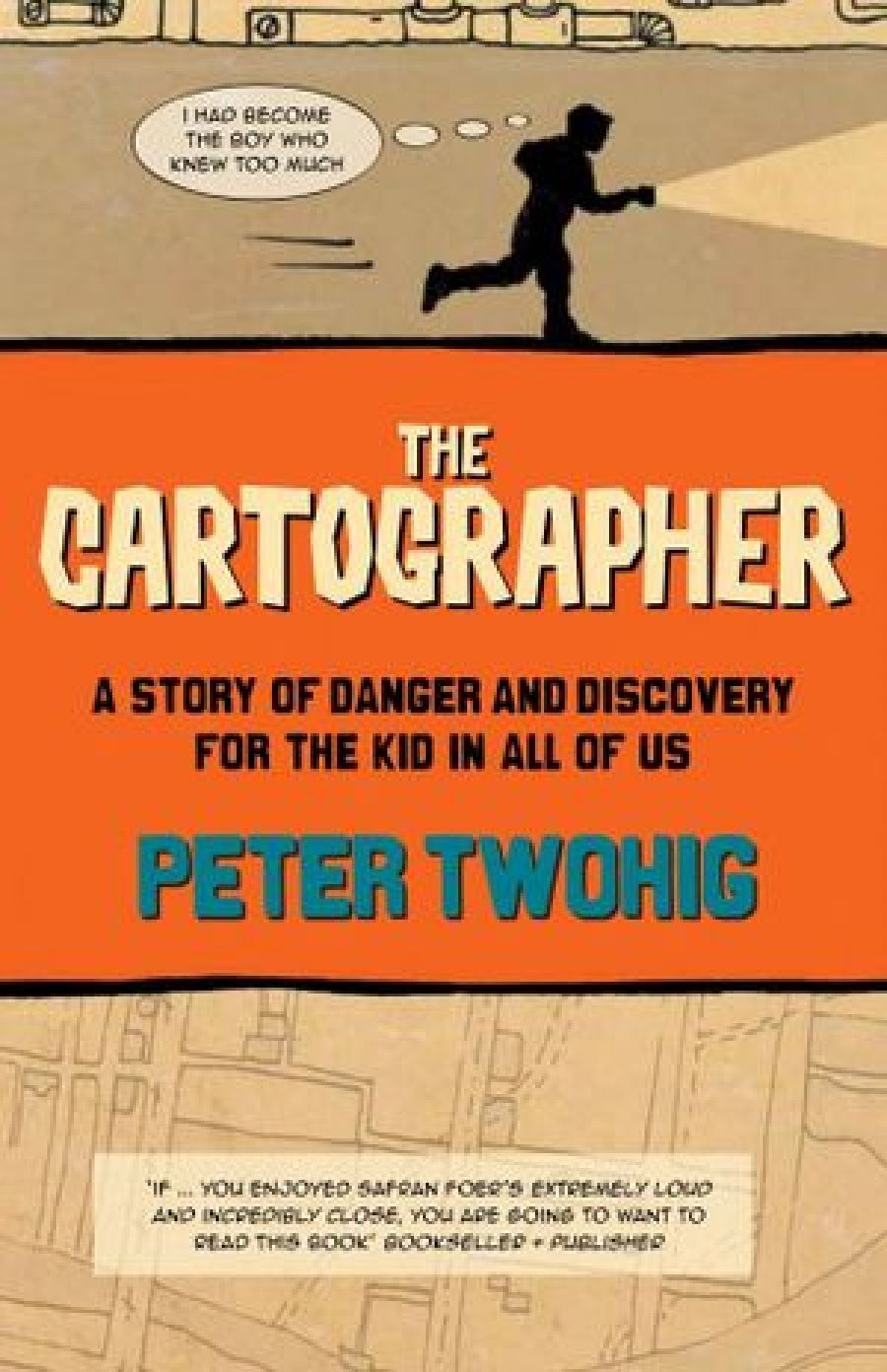
- Free Article: No
- Contents Category: Fiction
- Custom Article Title: Lucas Smith reviews 'The Cartographer' by Peter Twohig
- Review Article: Yes
- Online Only: No
- Custom Highlight Text:
The unnamed, eleven-year-old narrator protagonist of The Cartographer has an epileptic fit after witnessing a horrific rape-murder. The year is 1959. His father has just left the family days after his identical twin brother was killed by faulty playground equipment. The child’s closest friend is his wheeler-dealer grandfather, but it is in his own head that he thrives. To act out his grief he inhabits a series of superheroes, chief among them the Cartographer, creator of an intricate, pictorial, ever-growing map of Richmond and Melbourne’s south-eastern suburbs, above and below ground. Cartography (he learns the word from an old army manual) is his way of avoiding trouble. Unfortunately, trouble follows him wherever he goes.
- Book 1 Title: The Cartographer
- Book 1 Biblio: Fourth Estate, $29.99 pb, 392 pp
- Book 1 Readings Link: https://www.booktopia.com.au/the-cartographer-peter-twohig/book/9780732293178.html
There are some resonant moments, as when the Cartographer smashes ECT equipment that he had witnessed being used on another child (‘I had never broken anything electrical with an axe before and I loved the glassy, squeaky screams it made’). Overall, though, the prose is too loose, too preoccupied with the narrator’s voice. To be sure, writing in the voice of a child is a difficult, thankless task. The Adventures of Huckleberry Finn (the initial murder scene owes much to the riverboat scene of Huck Finn) and To Kill a Mockingbird are rare examples of success. The child is by turns too innocent and too knowing. Children are as rawly intelligent as adults, they just know less. First-time author Twohig seems to forget this. Poignant flashbacks to the dead twin Tom are the only scenes in which the reader is granted another perspective. Here we see the child away from his fantasy world struggling to shut out crushing grief. This is Twohig at his best. But by the time the understated, serendipitous ending arrives, the reader has been enervated by the inconsistent verisimilitude.


Comments powered by CComment